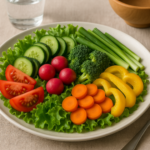2025-04-03 マサチューセッツ工科大学 (MIT)
<関連情報>
- https://news.mit.edu/2025/engineers-develop-mass-manufacture-nanoparticles-drug-delivery-cancer-tumors-0403
- https://advanced.onlinelibrary.wiley.com/doi/10.1002/adfm.202503965
マイクロ流体を介した高スループットの層状ナノ粒子の組み立て High-Throughput Microfluidic-Mediated Assembly of Layer-By-Layer Nanoparticles
Ivan S. Pires, Ezra Gordon, Heikyung Suh, Darrell J. Irvine, Paula T. Hammond
Advanced Functional Materials Published: 03 April 2025
DOI:https://doi.org/10.1002/adfm.202503965

Abstract
Surface modification of nanoparticles (NPs) via the layer-by-layer (LbL) technique is a promising approach to generate targeted drug delivery vehicles. LbL-NPs have been successfully used in preclinical models for controlled drug release, tumor and immune cell targeting, improved pharmacokinetics and biodistribution, and controlling cellular trafficking and uptake mechanisms. A simple and scalable synthesis method for LbL-NPs that can be adapted for clinical translation is of great interest. Here a new method of polymer deposition is presented onto NPs enabled through microfluidic (MCF) mixing. NPs are mixed with polyelectrolytes using commercially available bifurcating mixer MCF cartridges. In addition to increased process robustness, MCF allows for LbL electrostatic assembly using titrated polymer-to-NP weight equivalent ratios where no excess polymer is required to achieve a given LbL layering. Under such conditions, no time-consuming purification is needed, greatly increasing LbL-NP throughput and avoiding the loss of NPs during purification. The utility of this system is demonstrated using interleukin-12-loaded liposomal NPs, which show equivalent efficacy in vitro and in vivo to LbL-NPs generated via traditional lab-scale batch-wise polymer adsorption and tangential flow filtration purification. Moreover, it is shown that MCF can assemble LbL films of various chemistries and on various NP core substrates.

